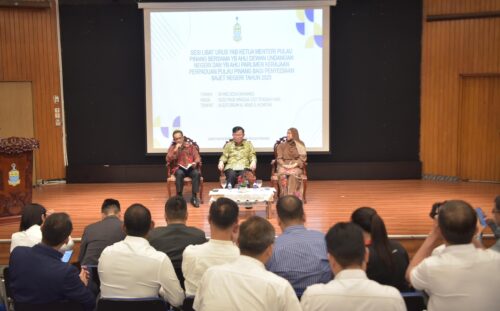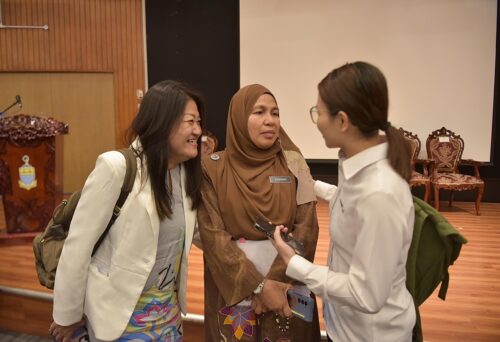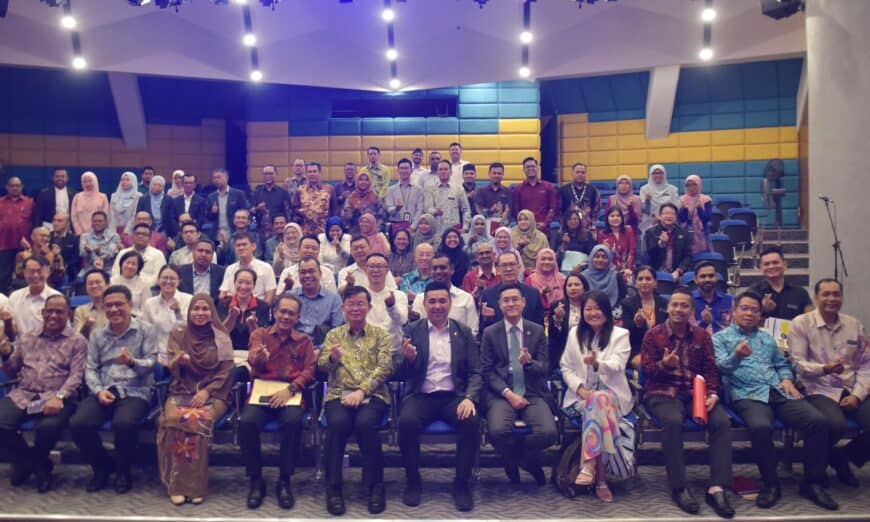THE Penang government is striving to preserve the state reserves this year by reducing the deficit and ensuring it maintains a healthy balance for 2025.
Chief Minister Chow Kon Yeow said that a healthy balance would provide a buffer to sustain operations until the revenues arrive.
“It is crucial to control our expenses this year to achieve our financial goals.
“If we observe, allocations for assistance constitute the majority of our expenses.
“Programmes like iSejahtera and various forms of assistance for schools, constituency allocations, etc., have already consumed about RM100 million.
“This includes support for single mothers, senior citizens, infants, newlyweds, and others. Some committed expenditures are expected to rise annually,” Chow said during the engagement session with MPs, state assemblymen, and heads of departments to receive input regarding the preparation of the Penang Budget for 2025.

This year’s engagement session marks the third since 2022.
“I believe it is crucial for the state government to share its state development project plans and, simultaneously, receive input from the state assemblymen and MPs regarding the preparation of the Penang Budget for 2025.
“Indeed, this year’s engagement session differs from previous years.
“In 2022 and 2023, it simply requested proposals for lists of development projects in each Parliamentary and state constituency, respectively.
“However, this time, the session will present a list of proposed major development projects for 2025 utilising state allocations.
“Following this presentation, MPs and state assemblymen can provide feedback or suggestions during the dialogue session at the end of the engagement,” he said in his speech at Komtar this morning, before launching the engagement session.

Chow was confident that the engagement session would add value to the preparation of the Penang Budget for 2025, contributing to the holistic development of the state.
He believed that Penang has made significant strides, positioning itself as a developed state, with the median household income surpassing the national level.
“However, it is crucial to acknowledge that our status as a developed state does not necessarily equate to financial stability.
“Our financial health remains a concern, with expenses consistently on the rise despite stagnant revenues over the years.
“Most people perceive Penang as developed, assuming it must be affluent.
“However, the reality is quite the opposite.
“In Penang, there are no new sources of income, I will be frank, except for land-related revenue. This revenue can accommodate deficits and bolster reserves.
“This is the reality we face in Penang. Our income streams are primarily tied to land-related revenue, while other sources bring in relatively modest sums, like entertainment taxes, such as those from cinemas,” he added.
Chow explained that despite the challenges, Penang remains a dynamic state in terms of economic development because the state government is not the sole driver of progress.
“In Penang, the private sector plays a significantly larger role than the public sector.
“Investment in projects far exceeds what the state alone can afford.
“Therefore, we consistently emphasise the need for the government to facilitate development through methods we refer to as PPP (Public-Private Partnership). This approach is crucial for fostering development.
“However, these developments do not necessarily translate into high revenue for the state. The tax revenue generated from the investors may not outweigh the incentives provided to them by the government.
“Nonetheless, their presence is vital as they create job opportunities and stimulate economic activities.
“Despite not contributing significantly to state revenue, particularly through taxes, these investments are essential.
“In reality, the state hardly receives any revenue directly from these investments. Perhaps the Penang Development Corporation (PDC) profits slightly from land sales,” he added.
Chow highlighted the struggles of managing the state finances prudently while actively generating state economic growth to create employment opportunities and foster development in other sectors.
Former Chief Minister Lim Guan Eng emphasised the importance of prioritising high-impact projects that can benefit the broader community, given the constraints of available funds.
Lim also suggested increasing the allocation for state assembly members to enable them to effectively address the needs of their constituents at the local level.
Chow replied that before making decisions on additional allocations for assemblymen, the state would closely monitor developments in the second half of the year before evaluating the request.
Also present were Penang State Secretary Datuk Rosli Isa, Penang Financial Officer Datuk Zabidah Safar, Deputy Chief Minister II Jagdeep Singh Deo, Penang executive council members, state representatives, and other relevant agencies.
Story by Christopher Tan
Pix by Darwina Mohd Daud

